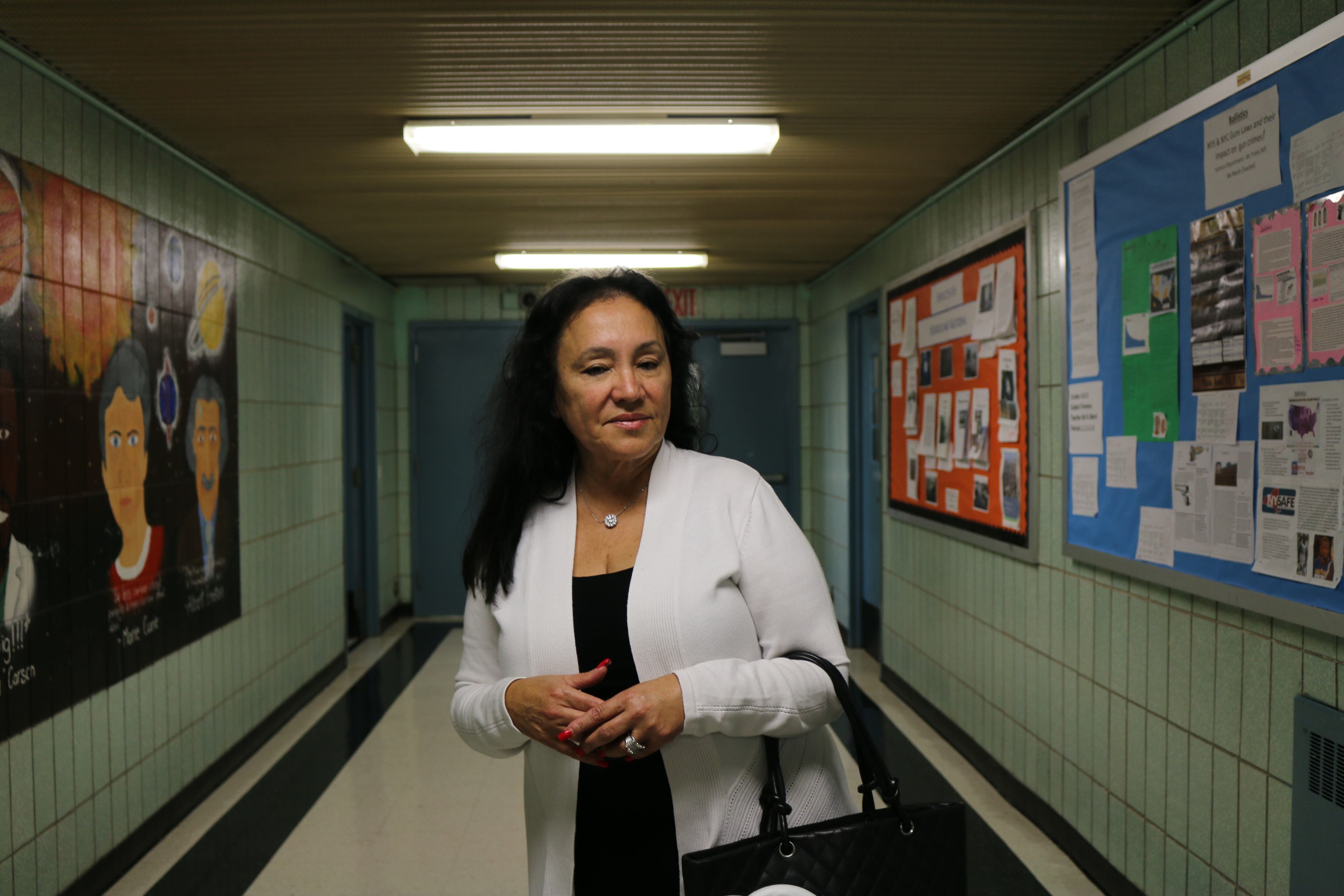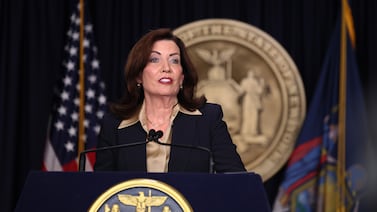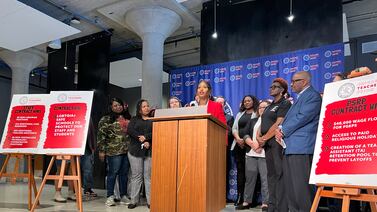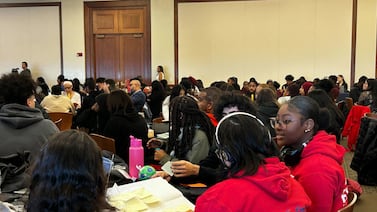Sign up for Chalkbeat New York’s free daily newsletter to keep up with NYC’s public schools.
State Education Commissioner Betty Rosa raised fresh concerns Thursday about a new law that will require New York City to slash class sizes, responding to a Chalkbeat analysis that found that the highest-poverty schools are least likely to benefit.
Rosa said the equity implications of the law are “a problem,” as lower-need schools are more likely to have larger class sizes that violate the new caps and will therefore disproportionately benefit from the policy.
The law does not come with new funding earmarked to reduce class sizes, raising the possibility of difficult tradeoffs, such as cuts to other schools or programs.
“You’re gonna have to take it from Peter to give it to Paul,” Rosa said during an education conference hosted by the news organization City & State.
As the state’s highest-ranking education official and staunch advocate of equity in education, Rosa’s critique of the policy is noteworthy, though she has no direct power to alter it. The law, passed overwhelmingly by the state legislature and signed by Gov. Kathy Hochul, represented one of the biggest changes in state education policy last year. It was widely celebrated by educators and advocates who point to research that shows smaller class sizes often boost student learning and argue that small classes are a basic necessity that all students should enjoy.
But because higher-poverty schools already have smaller class sizes, those schools are least likely to benefit from the influx of resources that will be required to comply with the mandate.
Experts have warned that city officials could be forced to funnel more resources to some of the city’s better-off schools — funding that could have otherwise been spent on social workers, tutoring, or other support at higher-need campuses.
Rosa suggested that tradeoff is at the heart of her worry about the new policy.
She said education policy ought to be driven “by needs — not driven by trying to give everybody the same thing.”
A spokesperson for Hochul did not respond to a request for comment about Rosa’s critique of the class size policy or answer questions about the law’s equity implications. (The governor does not appoint the state’s education commissioner.)
Implementing the law will require the city to hire thousands of new teachers at a cost of between $1.3 billion and 1.9 billion a year, according to projections from the New York City Department of Education and the city’s Independent Budget Office.
Experts have warned the hiring spree could prompt more affluent schools to poach educators from higher-need schools, which have long struggled to attract qualified staff and are more likely to have high turnover rates.
Still, the class size law’s backers said those concerns are outweighed by the need to reduce class sizes across all schools, as the current caps allow classes as large as 34 students. Under the new law, most classes won’t be allowed to exceed 25 children. Supporters also note that the majority of the students who will see their class sizes shrink come from low-income families, as most of the city’s students fall into that category.
State Sen. John Liu, who sponsored the state legislation and also attended the City & State event, was unwavering in his support for the law. He argued that the city should direct recent increases in state funding to the effort, noting that he believes small classes are a necessary ingredient for a quality education.
“You cannot provide a sound basic education when class sizes are still excessively large,” he said during a panel discussion at the conference. “It’s as simple as that.”
Matt Barnum contributed.
Alex Zimmerman is a reporter for Chalkbeat New York, covering NYC public schools. Contact Alex at azimmerman@chalkbeat.org.







